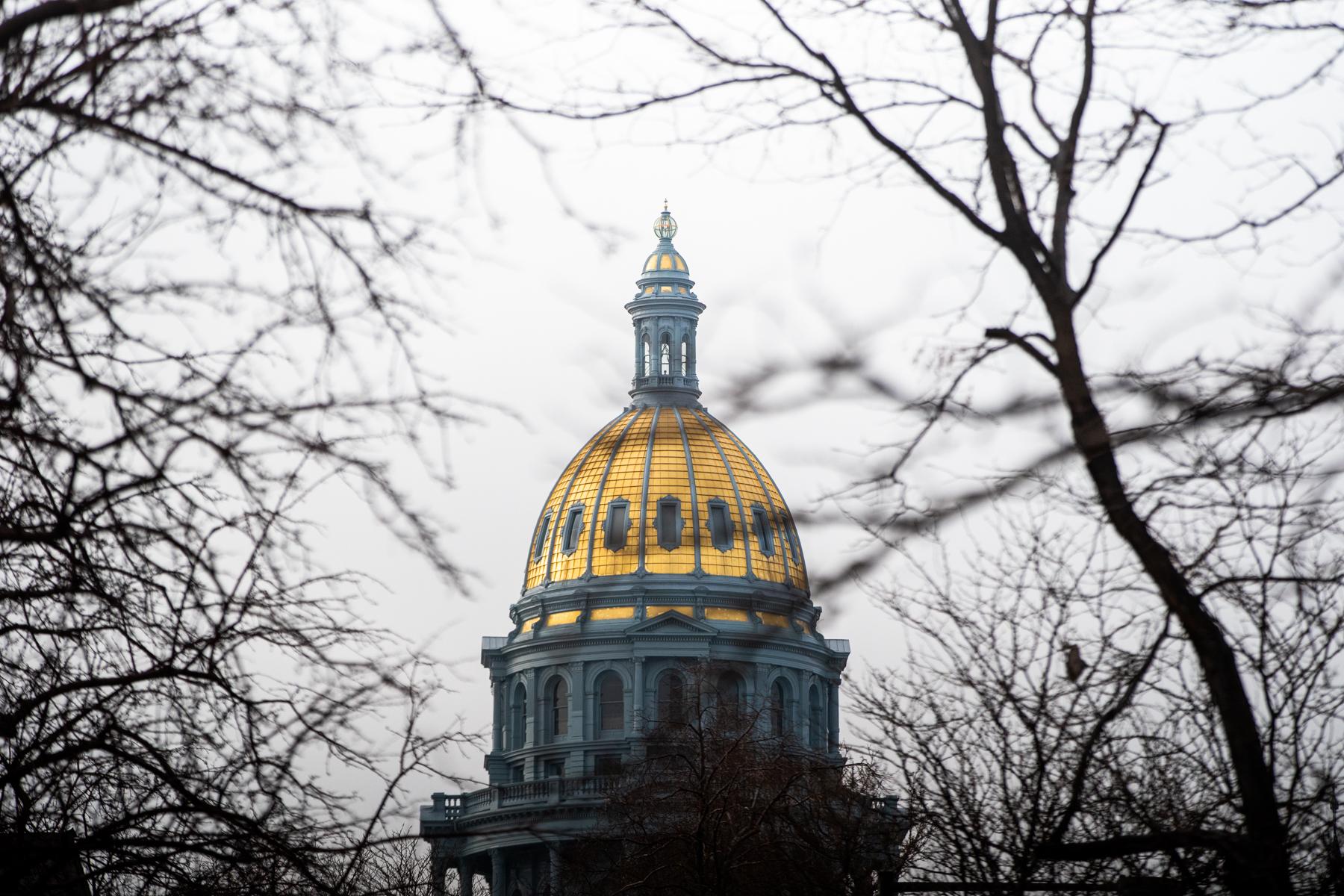
Jefferson County father Brian Flynn was disturbed by the map that popped up in his Instagram feed.
It showed states that have banned corporal punishment in schools and those where it’s still allowed. And Colorado was in the second category.
Flynn, whose daughter will be starting school soon, assumed his suburban Denver district would not allow physical punishment, but what was to prevent a future board from taking a different approach?
So he wrote to CPR’s Colorado Wonders to ask, “I recently learned that it’s not illegal in Colorado for a teacher to spank a student. What does this look like on the ground? Which districts have policies against corporal punishment and which ones still allow it? Is anyone working to make this a crime?”
Little used, but still debated
As it turns out, this is actually a particularly relevant question at this moment. State lawmakers are close to passing a bill to officially ban Colorado’s public schools, childcare centers and group homes from “the willful infliction of, or willfully causing the infliction, of physical pain on a child.”
“Corporal punishment is linked to a range of negative outcomes for children across countries and cultures, including physical and mental ill health, impaired cognitive and socioemotional development, poor educational outcomes, increased aggression and perpetration of violence,” said Rep. Regina English, a main sponsor of House Bill 23-1191.
English, an El Paso County Democrat, has a background in education and currently serves as the vice resident of the Colorado Black Caucus of School Board Directors.

There’s no official data on how many Colorado schools allow staff or volunteers to physically punish children, or how often it may be happening. Federal data from the 2017-18 school year found no instances of Colorado school districts administering corporal punishment.
“I thought this was already done. I did not realize this was still a thing,” Aurora Public Schools Director Michael Carter, who himself suffered corporal punishment as a student in Texas in the 1980s, told lawmakers at a hearing for the bill. “One of the things that everybody in here knows, I believe, is that it does not work.”
Colorado’s bill comes as the Biden Administration is urging the 23 states that still allow corporal punishment to ban the practice.
A member of the Colorado chapter of the American Academy of Pediatrics said her research found that 154 of Colorado’s 178 school districts have policies on the books banning corporal punishment.
While there is little data on the current use of corporal punishment, some witnesses told lawmakers they’re anecdotally aware of it happening, and pointed out that national data shows corporal punishment is used disproportionately against students of color and those with special needs.
“We do have people come to our organization and say that their student was punished in a way that caused them pain,” Jack Johnson, with Disability Law Colorado, told lawmakers. “Disabled students oftentimes end up disproportionately disciplined and impacted in a disproportionate way in these disciplinary proceedings.”
Push-ups and running laps. What will still be allowed?
While the image of corporal punishment tends to be a paddle on the bottom or a rap on the knuckles, much of the debate around the bill has focused on physical education and sports coaches and the question of what kind of discipline would still be allowed in those settings.
“When the coach says ‘run’ … that's going to be painful because you're running (and) it's going to be hard,” said GOP Rep. Anthony Hartsook of Douglas County. “Somebody doesn't like it and then they say, ‘well, that was corporal punishment.’”
Hartsook did eventually vote in favor of the bill. However, nearly every other House Republican voted against it, with many saying they worry it will bar legitimate forms of discipline and open schools up to lawsuits.
Republican Rep. Stephanie Luck said she understands the goal of preventing traditional forms of corporal punishment. But the former sixth-grade teacher told her colleagues she knows educators who use things like push-ups to maintain classroom order.
“I do struggle with the idea that we shouldn’t expose our children, in any way, shape or form, to pain. Because the world is full of pain,” she said during the House floor debate on the bill. “Ten push-ups might result in some discomfort, but it might also turn poor behavior to a good behavior and the outcome of that good behavior will allow the student to flourish.”
Backers argue the law has guardrails to still allow exercise-based punishment, as long as that exercise doesn’t go beyond what could be considered reasonable and isn’t intended specifically to cause the student pain.
“Either way we try to spin it, inflicting pain to a child is not okay,” concluded Rep. English.
The bill is in the final steps of the legislative process; it has passed the House and received unanimous support in its Senate committee. It is now awaiting a floor vote in the state Senate.









